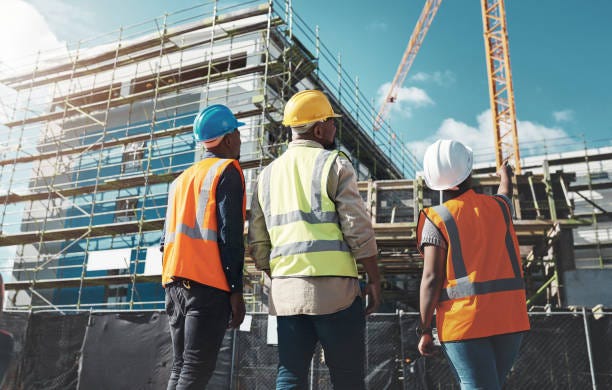Necessary Things Needed For Any Commercial Project
Are you starting a new commercial project and wondering what essential elements you’ll need to ensure its success? From materials to planning, every step plays a critical role in the outcome. Whether you’re building a new office, retail space, or industrial facility, careful consideration of resources, design, and logistics is crucial. So, what are the key components you should focus on when undertaking a commercial venture? Here’s a detailed guide on the necessary things you’ll need to execute a successful project.
1. Clear Planning and Project Management
The selection of materials like steel, cement, and high quality doors, starts with a clear plan. Without a detailed roadmap, things can quickly spiral out of control, leading to delays, increased costs, and substandard results. Proper project management is key to avoiding these pitfalls.
Key Aspects of Project Planning:
• Timeline: Establishing a realistic timeline helps keep everything on track.
• Budgeting: Proper budgeting ensures you don’t run out of funds midway through the project.
• Team Coordination: Clear communication between architects, contractors, and clients is essential to ensure the project runs smoothly.
2. High-Quality Materials for Longevity
One of the most crucial considerations for any commercial build is selecting the right materials. They not only determine the project’s durability and safety but also impact its overall aesthetic and functionality. Key materials include steel and concrete for strength and stability, especially in larger structures.
Additionally, opting for sturdy material ensures security and longevity in high-traffic areas. Proper insulation is also vital, as it enhances energy efficiency and improves occupant comfort. Using durable, high-quality materials is essential for creating a commercial space that stands the test of time and meets all safety standards.
3. Compliance with Legal and Safety Regulations
For any commercial project, adhering to legal and safety regulations is crucial. This involves acquiring the proper permits, ensuring the design meets building codes, and considering workplace safety requirements.
Regulations to Keep in Mind:
- Building Codes: Ensure your project complies with the local building codes that govern everything from structure to fire safety.
- Workplace Safety: Implement features that ensure the safety of workers during construction and of employees who will eventually use the space.
- Environmental Regulations: Some commercial projects may need to meet sustainability standards, such as waste management and energy-efficient designs.
4. Design and Functionality
The design of a commercial space must strike a balance between aesthetics and functionality. Whether it’s a retail store or an office building, the environment should be both visually appealing and practical for its purpose. Efficient layouts maximise usable space while ensuring it remains functional for employees and customers. Incorporating sustainable elements, such as eco-friendly materials and energy-efficient lighting, reduces long-term costs and supports environmental goals.
Additionally, opting for quality finishes, from flooring to high quality doors, enhances durability and appearance. A design that successfully combines functionality and visual appeal not only improves the user experience but also boosts property value and positively represents the business.
5. Reliable Contractors and Suppliers
The success of a commercial project relies heavily on the people working on it. Hiring experienced and reliable contractors ensures that the work is done to a high standard, while sourcing materials from trusted suppliers guarantees that you’re getting value for your investment.
Choosing the Right Team:
- Experienced Contractors: Look for contractors with a solid portfolio and proven experience in handling similar commercial projects.
- Trusted Suppliers: Reliable suppliers who offer high-quality materials will ensure that your project stays on track, both in terms of timeline and quality.
- Effective Communication: Maintain strong communication with your team to address any challenges that arise during the project.
Embarking on a commercial project requires careful planning, quality materials, and a reliable team. From ensuring legal compliance to selecting high quality doors and other materials, every element plays a crucial role in the success of the build. The key to a successful project lies in attention to detail, clear communication, and a focus on both function and form. With these essential components in place, you can be confident in delivering a space that is not only structurally sound but also visually appealing and tailored to consumer’s demands.






